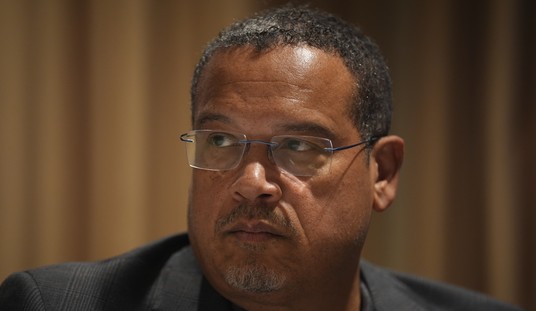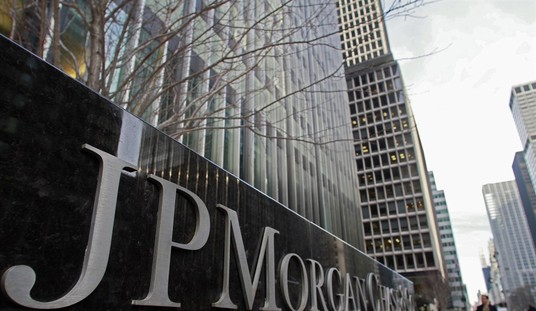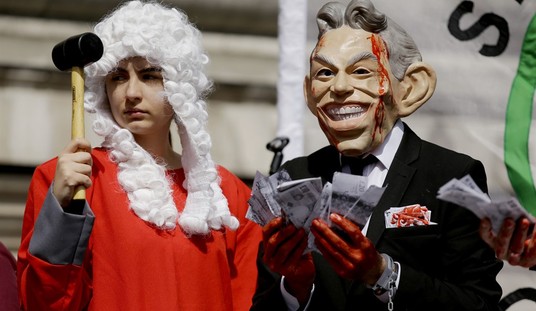They won Pulitzers for their reporting on the Rohingya massacre last year but now can finally accept them in person. Myanmar finally released Reuters reporters Wa Lone and Kyaw Soe Oo after over 500 days in prison for violating the country’s Official Secrets Act in what looked very much like a set-up. The pair were included in a general amnesty that saw more than 6500 other prisoners released:
Two Reuters journalists jailed in Myanmar under the country's Official Secrets Act for reporting on a massacre of Rohingya civilians have been freed after more than 500 days. https://t.co/GE0SU43d0K pic.twitter.com/rWP3rvVc58
— CNN (@CNN) May 7, 2019
The men led an explosive Reuters investigation — which eventually won a Pulitzer Prize — into the killing of 10 Rohingya men in the village of Inn Dinn, part of a military-led campaign against the Muslim minority which began in August 2017 after Rohingya militants attacked police posts. …
As the military in the mainly Buddhist nation tore through Rakhine state, allegedly killing with impunity, raping women and burning babies alive, authorities turned on the reporters trying to investigate the atrocities.
Wa Lone and Kyaw Soe Oo say they were set up by a police officer posing as a source. They say that in late 2017, officers invited them to a secret meeting at a restaurant on the outskirts of Yangon and handed them documents.
Police swooped and arrested them with the classified information in their possession.
It’s worth noting that this would not normally trigger the arrest of the journalists in the US. Possession of classified information is a crime, but one usually enforced against those cleared to access it in the first place or someone provably in the employ of a foreign government engaged in espionage. Even in that case, espionage by far the heavier charge to bring in court. It might, however, set up a contempt charge for reporters who refuse to name the sources who leaked the material to them, a charge that can keep reporters in jail indefinitely, but that happens at either a grand-jury proceeding or a trial. In this case, the government almost certainly passed the information to entrap the journalists rather than operate a mole hunt.
Ah, but what about Julian Assange, some may ask? The Department of Justice — at least so far — isn’t charging Assange with possession of classified material, or even publishing it. They’re not charging him with espionage either, again not at this stage. The indictment on Assange accuses him of conspiring with Chelsea Manning and providing material assistance to hacking one or more US government computers. That’s not a journalistic act, and certainly wasn’t done at the behest of the US government.
Anyway, the curious set of coincidences in this case certainly didn’t bother the Myanmar government, led by another global prize-winner, Nobel laureate Aung Sang Suu Kyi. She herself was at one time the subject of global protests against the previous regime, which kept her locked up in prison and home detention for years in order to prevent her from taking office after winning an election. Suu Kyi has turned out to be a bitter disappointment to freedom advocates, as the Washington Post notes:
The two journalists have become a symbol of Myanmar’s fading democratic hopes and promise under its Nobel laureate civilian leader. Both men grew up under Myanmar’s dark days of military rule and worked as reporters during the country’s dramatic transition to a largely civilian-led government. Suu Kyi’s government was widely expected to end the arbitrary detention of government critics, free political prisoners and continue a media renaissance that the country was experiencing at the time.
Yet her government has instead clamped down on free expression and continued to use archaic and widely criticized laws to imprison people like Wa Lone and Kyaw Soe Oo. When they were first arrested, they were held incommunicado, without access to their family or colleagues.
Their prosecution then dragged on for months, despite strong evidence that they were set up. Prosecution witnesses shared absurd details during the trial; one police officer said he burned his own notes from the time of the arrests, and another kept checking notes written on his hand as he testified.
Suu Kyi herself has also been under significant pressure to intervene in the case and free the journalists, including from Vice President Pence and others. However, she has defended their detention and said they were not jailed for their reporting but because they broke the law.
The Who had it right in “Won’t Get Fooled Again.” Meet the new boss, same as the old boss. Suu Kyi issued the general amnesty to get the US and other countries off her back and to end her personal embarrassment. Even after their release, Wa Lone and Kyaw Soe Oo had better keep watching theirs. This release is a happy turn of events, but likely not yet an ending.








Join the conversation as a VIP Member